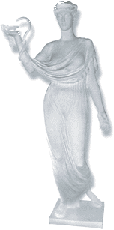

Ministry of Public Health and Social Development of RF
Russian Academy of Medical Sciences
Siberian Branch of Russian Academy of Medical Sciences
Siberian Branch of Russian Academy of Sciences
Medical Polar Fund “Science”
The Northern Forum



|
||

|
International Union for Circumpolar Health Ministry of Public Health and Social Development of RF Russian Academy of Medical Sciences Siberian Branch of Russian Academy of Medical Sciences Siberian Branch of Russian Academy of Sciences Medical Polar Fund “Science” The Northern Forum |
 
|
 |
Performance and Health in Cold Climate
Adaptive hypometabolism in the form of decrease in consumption of oxygen (VO2) studied at 140 healthy northerners. All of them were workers of various specialities and till some hours worked on a cold. It is known, that physical work on a cold is connected with expenditure by additional energy for thermal losses. It is accompanied by development hypoxia in connection with that breath by cold air includes a lot of protective reactions, such as restriction of ventilation of lungs, a spasm of bronchial tubes and deterioration of gas exchange in lungs (J.P.Nikitin, G.S.Shishkin, 1981; J.Wagner, S.M. Horvath, 1985). These changes are well studied at hypoxia, they are accompanied by decrease ÐÀÎ2 which leads to reduction of consumption of oxygen. In our researches it is revealed, that at northerners on a cold develops hypoxia which leads hypometabolism. It is established, that at temperature below –21 degree of C. With at the person develops primary respiratory hypometabolism which is shown by restriction of a gain of consumption of oxygen, activization anaerobic processes, a voltage reduction of oxygen in alveoluses. Other fact, showing adaptive hypometabolism northerners, the consumption level of oxygen is at performance of physical work. In these researches breath by cold air from +12 up to – 35 degree of C, it is provided with smaller consumption of oxygen, than at breath by warm air. We consider, that in a basis of the mechanism of decrease in power inputs on a cold increase of efficiency of muscular work, and also decrease thermal losses. As a starting signal for inclusion of this mechanism cooling action on respiratory ways serves. Decrease VO2 which appears on a cold and does not depend on temperature of inhaled air, specifies reflex character revealed adaptive hypometabolism. It is obvious, that it is not direct consequence of restriction of pulmonary ventilation. Thus, hypometabolism at loading on a cold at the people adapted for a cold is display of adaptation. Adaptive decrease in oxygen inquiry allows to avoid up to the certain conditions deficiency of energy in an organism. We find out seasonal dynamics of occurrence hypometabolism, that shows its convertibility, as well as any adaptive reaction. We consider, that hypoxia on a cold in a combination with hypometabolism is reflection of chronic deficiency of energy to which the organism of northerners is exposed long time. It is one of the main system factors defining decrease of functional reserves and development of a chronic pathology in subpolar zones
Note. Abstracts are published in author's edition
|
Mail to webmaster
Main page |
© 1996-2005, Siberian Branch of Russian Academy of Sciences, Novosibirsk
Last update: 06-Jul-2012 (11:52:05)